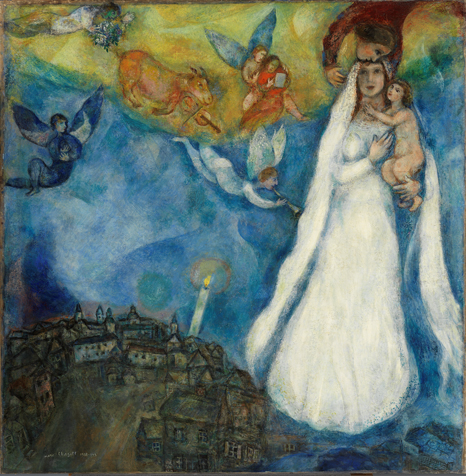Chagall
The Path of poetry
Russia/France/United States, 1909-1947.The Bible and Palestine.
In 1930 Ambroise Vollard asked Chagall to illustrate the Bible. Before starting on this series of one hundred etchings, the artist travelled to Palestine in 1931. The time he spent in the Holy Land left a deep mark on him. The Bible had always fuelled his imagination, raising constant questions about his identity and the authenticity of his roots. These works are unique and powerfully intense for their fervent spirituality.
The Supernatural.
The poet Guillaume Apollinaire described Chagall’s art as “supernatural,” thereby preventing himfromfalling into the trap of his other friends, the Surrealists, who attached priority to the subconscious. As a freeman, he incessantly sought new sources of inspiration, remaining in contact with life.
War and Exodus.
Chagall’s life spans the whole of the twentieth century. He experienced two world wars, the October Revolution of 1917, different countries and cultures and constant exoduses. Although he painted the ravages of war and the misfortune of the Jewish people, he never lost his hope in mankind or his love of life.

Marc Chagall (Vitebsk, 1887 - Saint-Paul de Vence, 1985).
The Madonna of the Village.
(La Vierge du village).
- Año
- 1938-42.
- Técnica
- Oil on canvas. 102.5 x 98 cm.
- Propiedad
- Thyssen-Bornemisza Museum, Madrid, 1965.6.
- © Thyssen-Bornemisza Museum, Madrid. Photo: Hélène Desplechin.




